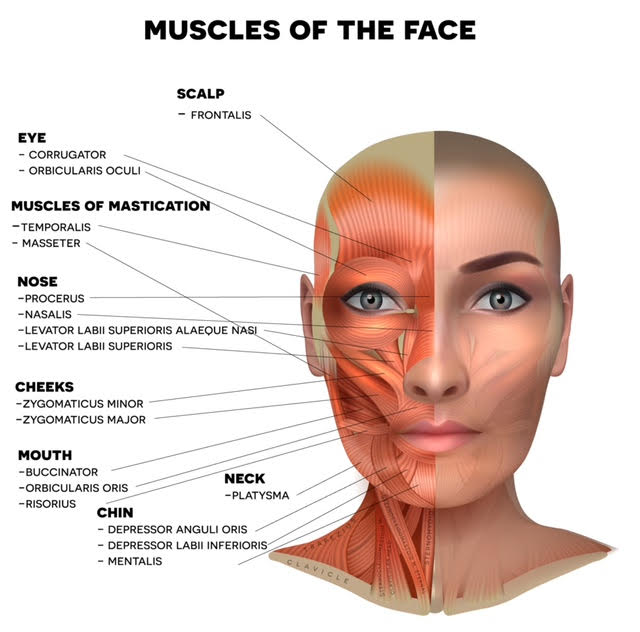One unsolved mystery of the medical world is a condition known as Bell’s Palsy. The condition is characterized by sudden paralysis of the facial nerve has always perplexed doctors and medical researchers. The cause of the onset of its symptoms is unknown, and the cure for the condition is unknown.
What is Bell’s Palsy?
Bell’s Palsy is a non-serious, temporary condition that results from the paralysis of the facial muscles on one side of the patient’s face. Doctors believe the paralysis is caused by damage or trauma to the 7th cranial nerve, also known as the facial nerve, leading to the muscles becoming unresponsive.
What are the symptoms of Bell’s Palsy?
The symptoms of Bell’s Palsy, although mild, are offset suddenly and become progressively worse over 48 hours. As mentioned above, there are no known causes for the onset of these symptoms. The symptoms include, but are not limited to, loss of the use of facial muscles on one side of the face, headache, drooping of the lips to one side causing drooling, loss of taste in parts of the tongue, and having difficulty smiling, frowning, blinking, squinting and closing your eyes.
What are tests of Bell’s Palsy?
Because of the inability of scientists and medical researchers to identify a root cause of the neurological condition, there is no test that can tell you directly if you have bell’s Palsy or not. If you think you are developing symptoms of the condition, you need to visit the ER and be candid about the timelines to our doctor.
Knowing when the symptoms began is crucial to an accurate diagnosis. Additionally, the physician will ask you to try and use your facial muscles by asking you to smile, frown, blink or raise your eyebrows. Inability to do any of these correctly might let him know that you are coming down with Bell’s Palsy.
On the other hand, symptoms of Bell’s Palsy do resemble those of potentially more severe conditions, which is why, in some cases, doctors might prescribe you some tests. These can include complete blood tests, an EMG, an MRI, and a head CT scan.
I have Bell’s Palsy; will I develop other health complications?
Bell’s Palsy is a temporary condition, and most patients make a full recovery. However, many people wonder that a neurological disorder is bound to leave some scars on your brain.
This is not the case. Although it involves a nerve, Bell’s Palsy does not affect any part of your brain. With the right speech and physiotherapy, patients make a full recovery over time. However, in very rare cases, some patients might be left with the inability to completely close their affected eye or a slightly droopy lip.
These effects are highly uncommon but can occur in people with old age or those that have some underlying medical condition. An eye that you can’t properly close might have the tendency to become dried out. Which is why doctors recommend the use of eye drops. Moreover, a bedtime ointment can also help protect the cornea from scratching while you are asleep.
Apart from this, there are no long-term complications associated with bell’s Palsy. And patients who recover can go on to lead healthy lives.
Am I more prone to get Bell’s Palsy?
Many people often wonder if specific characteristics make them more vulnerable to Bell’s Palsy as with any other medical condition.
While there is insufficient research to prove the correlation, some studies have shown that people who have or are recovering from an infection are more likely to develop bell’s Palsy. This is also because the condition is most like due to the inflammation of the body’s immune system.
Moreover, pregnant women and people with diabetes also make up a relatively more significant portion of the patients of bell’s Palsy. It should be kept in mind that there is no direct link established between these conditions. Because there is insufficient scientific evidence to back any claims.
How can I prevent Bell’s Palsy?
Because there is no direct cause of the condition, you can do nothing to prevent it from developing. However, you can attempt to lead an overall healthy life and eat nutritious foods. This can save you from developing diabetes or obesity, which are considered to be the core of many other illnesses.
Final word
As far as Bell’s Palsy is concerned, there is nothing you can do to prevent it. But if you feel like you are developing the symptoms. The best course of action is to rush to the ER immediately. And follow the prescribed treatment plan to the dot. It is a temporary condition with no serious health complications. It won’t be long before you are fully healthy and can’t even tell you ever had any problem with your facial nerve or anything.



Pingback: Are Bell’s palsy and cerebral palsy related? - Bells Palsy Coach
Yes!
I must have developed bells Palsy somewhere along the way, as I’m 62 and looking back realize I have had several characteristics of this disease from as far back as 20 years! I recall friends and family commenting i have lazy eye and asking me why I’m smirking at them now. It’s very mild yet obvious to me now. Unfortunately, I’m lacking the smoothing of the facial line next to my nose that is often characteristic of this disease, and since I already lack the attractiveness of full upper lips, my right upper lip dips somewhat, causing my whole mouth to appear even smaller, it’s just my luck! Im addition, I now realize why i notice a drool when I sleep on my right side. I only wish i had been aware of it a long time ago so i could have taken advantage of the exercises that might help strengthen my facial muscles and give me a more balanced look. I wonder, assuming i developed bells Palsy 20 years ago, will doing facial exercises benefit me now?
I am sorry to hear about your developing bells palsy. I do think strengthening your facial muscles and doing biofeedback with your face will improve those insecurities.